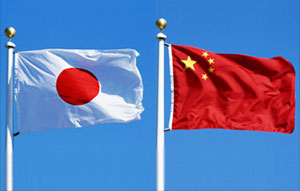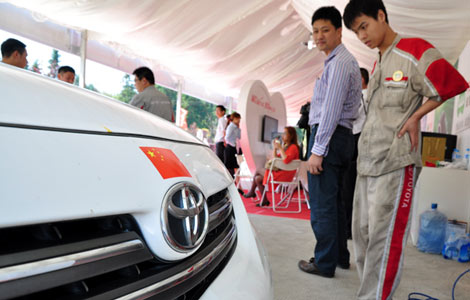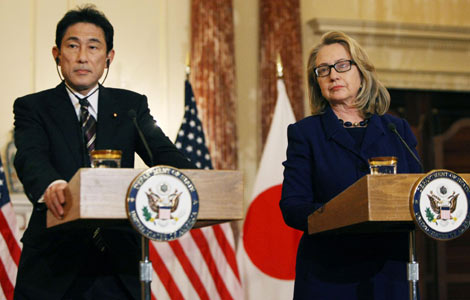

 Does China's youth still have confidence in China-Japan relations? We would like to invite five talented young people to share their comments on this contentious issue.
Does China's youth still have confidence in China-Japan relations? We would like to invite five talented young people to share their comments on this contentious issue.
Barring a change of mind on the part of the Japanese government, the territorial issue surrounding China's Diaoyu Islands seems unlikely to be resolved anytime soon.
With both Chinese and Japanese leaders gathering in the Russian city of St Petersburg for a G20 summit on Thursday, curiosity arose over the possibility of a sideline contact between the two neighboring countries.
 After reading the reports and comments, I found most of the media concentrated on the point that "90 percent of citizens from each side share a negative impression of the other country."
After reading the reports and comments, I found most of the media concentrated on the point that "90 percent of citizens from each side share a negative impression of the other country."
The strained China-Japan relationship is the most telling witness to how Japan's diplomatic policies have been held hostage by its domestic politics.
Since taking office as Japanese prime minister, Shinzo Abe has been launching frequent diplomatic blitzes targeting China.
 The 1945 Potsdam Proclamation, a statement of terms for the unconditional surrender of Japan issued in the names of the United States, China and the United Kingdom, determined that the terms of the Cairo Declaration shall be carried out, including that China’s northeast regions, Taiwan Island, Penghu Islands and its surrounding islands, should return to China.
The 1945 Potsdam Proclamation, a statement of terms for the unconditional surrender of Japan issued in the names of the United States, China and the United Kingdom, determined that the terms of the Cairo Declaration shall be carried out, including that China’s northeast regions, Taiwan Island, Penghu Islands and its surrounding islands, should return to China.
In a speech titled "Japan is back", during his visit to Washington, Japanese Prime Minister Shinzo Abe pledged to reinvigorate Japan's economy and said: "Japan is not, and will never be, a tier-two country."
Tensions between China and Japan over the Diaoyu Islands dispute have escalated after the recent incidents involving the two countries' vessels and planes.
 US Secretary of State Hillary Clinton on Friday claimed that the Diaoyu Islands were under the administrative authority of Japan, and therefore the US-Japan Security Treaty applies to it.
US Secretary of State Hillary Clinton on Friday claimed that the Diaoyu Islands were under the administrative authority of Japan, and therefore the US-Japan Security Treaty applies to it.
The Japanese economy, under the burden of years of deflation and an aging population, has been the "Patient of Asia" for the last two decades.
Kitera's primary task is clearing up the mess caused by the Japanese government's "purchase" of China's Diaoyu Islands, which has triggered the worst bilateral tension in decades.